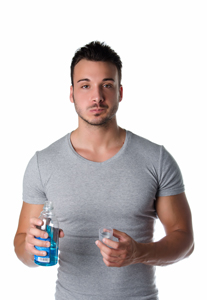Tips for Lifelong Teeth Whitening
July 18th, 2019

Over time, everyone’s teeth can naturally become dull, due to aging and consumption of staining foods such as chocolate and coffee. The good news is that teeth-whitening treatments can help you maintain white teeth that last a lifetime.
Get Regular Treatments
Regular treatments at Bay Smile Docs are necessary to keep your teeth white for life, since whitening treatments are only temporary. Bleaching too frequently, however, can wear away your tooth enamel.
The effects of in-office bleaching are safe and can last for several months to a year. You may need to repeat your use of at-home bleaching kits every few months to maintain your white teeth. As far as day to day, whitening toothpastes are safe to use on a daily basis. The American Dental Association suggests you ask your dentist for advice on which treatment is best for you.
Have Realistic Expectations
Everyone’s teeth are different and, according to the American Dental Association, not all smiles can be turned bright white. Teeth can naturally be a light yellowish color that responds well to teeth-whitening procedures, but bleach is not likely to be effective for grayish teeth. Results for brownish teeth fall somewhere in between.
Practice Good Oral Hygiene
Good hygiene is imperative for teeth-whitening efforts. Visible fillings, implants, or bridges that are metallic can be visible against the white color you desire. These treatments can be prevented by maintaining a good oral hygiene routine.
In addition to brushing your teeth twice a day to remove dirt and potential staining agents, keep the following tips in mind:
- Floss every day
- Visit our Lynn Haven or Panama City Beach office every six months
- Rinse your mouth with water after each meal and snack
- Limit sugary and starchy foods and beverages, especially between meals


